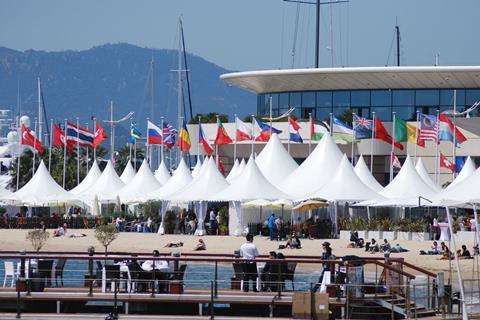
No Netflix, #MeToo, poor buzz on the Competition titles, low attendance, a typically soft market in the current climate and the continuation of security measures which would put Ben Gurion Airport to shame – it didn’t need to rain for Cannes to feel damp this year. But the heavens opened and the festival faced into a perfect storm. That of its own hubris, the changing face of the business, and, most damagingly, #metoo.
To be called a hunting ground for rapists and sexual predators on its glitzy closing night: that’s got to hurt, more so because anyone who attended Cannes during the time to which Asia Argento was referring knows there’s truth in the allegation.
Just last year, Cannes felt brazen enough to play Roman Polanski’s Based On A True Story in an out-of-Competition slot – tacked on to the end of the festival a mere four months after protests had forced the director’s withdrawal from the Cesars.
Those chickens certainly came back home quickly to roost. A mere 12 months later, the festival was hurriedly signing accords to promote women amongst festivals while still programming only three female-directed features in its main Competition. The sight of such a beloved event so publicly on the back foot was painful to behold.
At issue is the fact that the film business has changed beyond recognition, while Cannes has stayed the same, constrained by its venue and some dinosaur-ish attitudes both inside the festival and within the French business itself. The awards circuit has become a beast, and Venice is suddenly where it roars. Trying to turn the barge around this year with a low-key line-up and a changed schedule seemed both odd and poorly-communicated – suddenly the most important film festival in the world looked fragile. The Cannes Film Festival is a giant iceberg, with the Competition perched on top and the world’s film business underneath, and both felt structurally weakened.
The decision to change the press screenings because of the hurt feelings of previous directors walking the red carpet doesn’t just protect the films from criticism: it also protects Cannes from criticism for programming them in the first place. And, ironically, none needed a nanny this year.
What the decision did lead to, predictably, was a lack of buzz for a line-up which was low on “names”. The verdict at the end of a solid Competition line-up came late for the industry. Days drifted by with people not talking about the films; sales agents – almost 100 percent French for Competition titles this year – felt the lack of excitement keenly. And an attempt to add an embargo to films screening publicly in late-night slots with press screenings the next day – surely the forgotten orphan children of an already-quiet festival – was introduced at the 11th hour and never policed.
Cannes is an expensive festival to attend which boasts – to the envy of any event – a press contingent of 4,000 correspondents from around the globe. What seems like a small issue meant they missed print deadlines, nightly news slots and name stars to interview.
The cost of attending the market – financing offices or stands at Cannes – dwarfs the costs of the media, however. Business has been soft at several consecutive markets as players like Netflix and Amazon have taken talent out of play and a significant bite of mid-budget business. This year they were off the screen, while HBO saw a pretty unexciting adaptation of Fahrenheit 451 play out of Competition. The only people who truly understand the ins and outs of this are the cable giants, the festival and those who set the French rules on theatrical release – everyone else just sees a lack of stars on the red carpet. And in the end, Netflix cherry-picked the Competition anyway.
This year’s Competition line-up was solid overall after a weak start. Cate Blanchett led a jury which defied expectations by still not granting the only Palme d’Or outright to a woman (Jane Campion shared her prize a quarter of a century ago with Chen Kaige), and found a worthy winner in Hirokazu Kore-eda’s Shoplifters. Lee Chang-dong’s brilliant Burning was shut out completely (a snub, like Toni Erdmann two years ago, which is hard to understand), but the rest of the awards were distributed fairly, including nods to the excellent Cold War and Dogman.
There’s more to Cannes than the business, though, and there’s also more to Cannes than it being the church of a high-art-house line-up. Throughout its history, the festival has led with a chemical combination of stars and emerging talent, glamour and the ineffable chicness of the French Riviera. Think even of the excitement which accompanied the premiere of Pulp Fiction, for example, and contrast it with 2018.
Yet if the ship is turning itself around, the people of Cannes themselves might be the ones to give it a crucial push: from its jetset glamour origins to a parade of cosmetics models hawking jewellery, heavily-armed soldiers, and, finally, being called a hunting ground for sexual predators. Whatever else, Cannes 2018 will not go down as a banner year for its residents.
























No comments yet